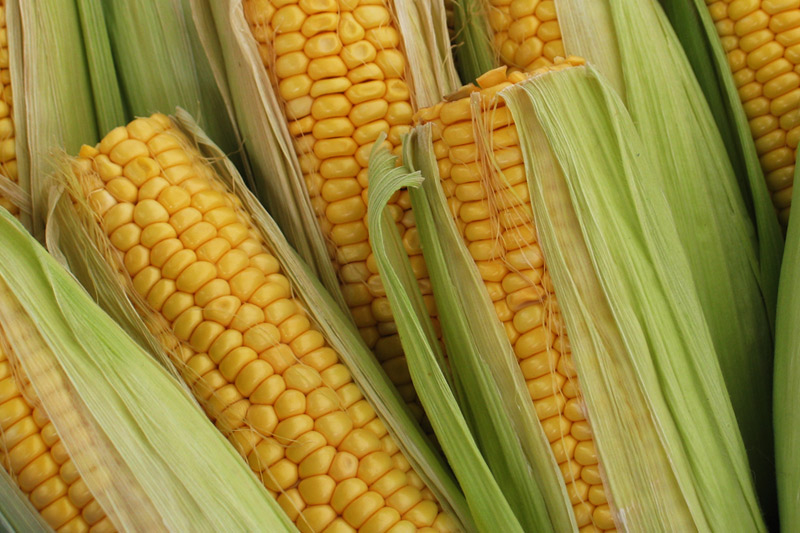By David Lawder
WASHINGTON (Reuters) – A trade dispute panel ruled on Friday that Mexico’s restrictions on U.S. exports of genetically modified corn violate the U.S.-Mexico-Canada Agreement, prompting the Biden administration in recent weeks to achieved a major trade victory.
The Office of the U.S. Trade Representative said the USMCA dispute resolution panel ruled in favor of all seven U.S. legal claims in the long-running case. The panel said Mexico’s restrictions are not based on science and violate the USMCA’s chapters on sanitary and phytosanitary measures and on market access and national treatment.
The three-member panel’s final report recommended that Mexico bring its corn trade policy into line with the trade agreement. Under the rules of the 2020 trade deal, the country has 45 days to do this, and failure to comply could result in punitive tariffs on some exports to the US.
Mexico’s ministries of economy and agriculture said in a joint statement that they disagreed with the ruling but would respect it. They did not provide details on what steps they would take.
“The government of Mexico disagrees with the panel’s decision as it considers that the measures in question are in line with the principles of protecting public health and the rights of indigenous peoples,” the agencies said.
Nevertheless, they said dispute resolution was an important part of the USMCA trade deal, noting that Mexico and Canada prevailed over the U.S. last year in a dispute over rules of origin in the automotive sector.
The corn dispute began six months after the USMCA went into effect in July 2020, when then-President Andres Manuel Lopez Obrador decreed that genetically modified corn would be banned by the end of 2024 — a move largely aimed at U.S. corn exports. His successor, President Claudia Sheinbaum, has supported the policy.
After years of little movement in consultations, USTR requested arbitration to settle the dispute, challenging Mexico’s 2023 decree that immediately banned the use of genetically modified corn in tortillas and dough, and instructing government agencies to ban its use in other food and animal feed.
The US argued that the Mexican government’s claims that genetically modified corn is harmful to human health were not based on science.
“The panel’s ruling reaffirms the United States’ long-standing concerns about Mexican biotechnology policies and their detrimental impact on U.S. agricultural exports,” U.S. Trade Representative Katherine Tai said in a statement.
U.S. Secretary of Agriculture Tom Vilsack said the decision ensured that U.S. farmers and exporters “will continue to have full and fair access to the Mexican market.”
“It is also a victory for the countries around the world that grow and use products of agricultural biotechnology to feed their growing populations and adapt to a changing planet,” Vilsack added.
In February, the Mexican government relaxed the initial ban on genetically modified corn, explicitly allowing its use for animal feed and industrialized human consumption products, but kept the ban on its use in tortillas.
Mexican officials have defended restrictions on genetically modified corn in tortillas, arguing that it is up to Washington to demonstrate that its export does not harm human health.
Newly elected US President Donald Trump has threatened to impose a blanket 25% tariff on all imports from Canada and Mexico when he takes office on January 20 unless they stem the flow of illegal migrants and fentanyl into the US.
If implemented, these duties would appear to conflict with the rules of the USMCA, which could potentially lead to a new litigation case.
TOP BUYER
Mexico, the birthplace of modern corn, bans the planting of genetically modified corn over fears it would contaminate native grains. Yet the country is the largest foreign buyer of U.S.-grown yellow corn, almost all of which is genetically modified.
The Mexican government expects local buyers to import a record 22.3 million tons during the 2023/2024 agricultural season.
The U.S. exported $4.8 billion worth of corn to Mexico from 2024 through October, according to data from the U.S. Census Bureau.
Mexico boasts more than 60 native corn varieties, known as landraces, many of which come in a kaleidoscope of colors and with different flavor profiles.
This month, Deputy Economy Secretary Luis Rosendo Gutierrez emphasized that the administration was doing everything it could to protect the free trade pact amid Trump’s tariff threats. He added that Mexico would comply with the panel’s ruling.

U.S. and international agriculture and biotechnology groups cheered the ruling.
“This is the clearest signal that maintaining free trade agreements will provide the stability needed to allow innovation to flourish and our food security to be anchored,” said Emily Rees, president of CropLife International, which represents the plant science industry.


